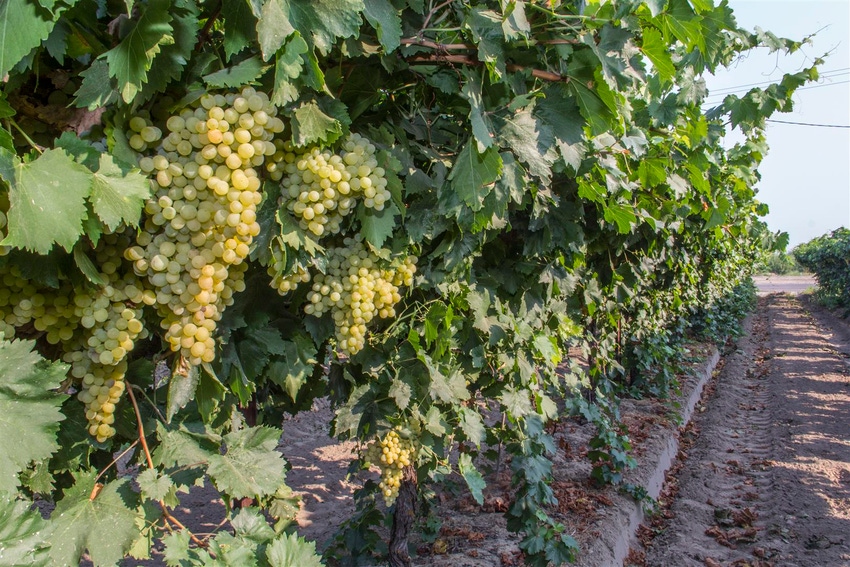
The Raisin Bargaining Association (RBA) Board of Directors approved a sliding scale price offer for the 2014 natural seedless raisin harvest.
Packers will have until Oct. 31 to accept the offer.
The proposed sliding scale will be determined by deliveries documented at the Raisin Administrative Committee for the fiscal year ending July 31, 2015. An agreement between RBA and 60 percent of its signatory packers can trigger a final announced price agreement at any time prior to that date.
The offer includes:
Deliveries of 285,000 tons or less at a price of $1,950 per ton
Deliveries of 285,001 tons to 295,000 tons at a price of $1,900 per ton
Deliveries of 295,001 tons to 305,000 tons at a price of $1,850 per ton
Deliveries of 305,001 tons to 315,000 tons at a price of $1,800 per ton
Deliveries of more than 315,000 tons will be priced at $1,750 per ton
The sliding scale will be the fully agreed-upon announced field price per ton, which includes the following payments:
Moisture incentive @10 percent -- $80
Maturity incentive @ 75 percent “B” grade -- $50
Container rental -- $21
Transportation (minimum) -- $15
RAC Assessment -- $14
USDA Inspection -- $13
Because the final price of the agreement would not be determined until July 31, 2015, grower’s payments will include: an initial payment of $1,400 per ton for all deliveries within 15 days of a grower’s final delivery of meeting raisins.
A second payment of $350 per ton for all deliveries shall be paid on or before Feb. 28, 2015, based on the minimum price on the 2014 sliding scale.
A final payment shall consist of the announced field price for all deliveries, less the initial and second payments.
Industry outlook
The 2014 crop is projected to be between 20 percent and 40 percent smaller than last year’s crop, according to Glen Gato, chief executive officer of the Fresno-based RBA. This is due to an extremely dry growing season and cold winter that damaged vineyards.
Similar reports from Allied Grape Growers suggest a smaller harvest of Thompson Seedless Grapes. Yields there averaged 7.5 tons per acre, compared to 10 tons and more last year.
According to the Gato, there is a lack of interest by wineries this year to purchase this year’s Thompson Seedless harvest for their crush. This is having an impact on the raisin industry, he said.
Turkey, a major exporter of dried-grapes, is predicting a large crop similar in size to its 2012 crop, which exceeded 340,000 tons. California delivered 311,090 tons of Natural Seedless raisins that year.
According to Gato, the potentially large dried grape harvest in Turkey "impacted the European market with unsustainable short-term pricing that was seriously considered" by the RBA board in arriving at the prices offered in the sliding scale.
According to the RBA’s latest newsletter, Turkish production is predominantly a Sultana which is dipped in a potassium carbonate solution to enhance the sun-drying process and results in a lighter colored dried-grape.
While the growing methods of the Sultana are steeped in generational tradition, they do not compare to the methods employed by California raisin growers, who operate at a far higher standard, and adhere to the toughest regulatory requirements found anywhere in the world, including strict pesticide application guidelines.
For reasons of quality, food safety, and even size (Sultanas being significantly smaller than the average California raisin) Turkish Sultanas are not easily interchangeable unless there is a substantial pricing difference between the two products.
The California raisin industry has marketed 100 percent of its crop for the past four years. This year will mark the fifth consecutive season without establishing a reserve.
During the past four years, the industry averaged 344,224 tons in deliveries and 337,532 tons in sales at an average field price of $1,680 per ton. This means the California raisin industry value averaged more than $575 million annually during the past four years.
About the Author(s)
You May Also Like






